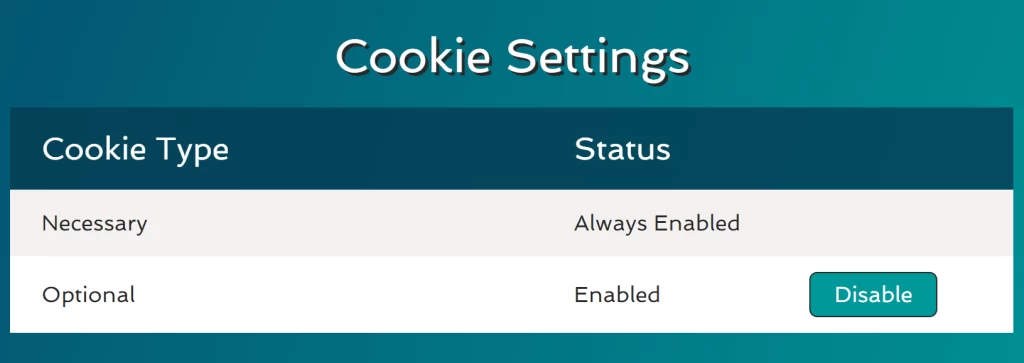We spend hundreds of hours each year making sure our systems, customers’ information, and customers’ identities are protected. While we have always taken our users’ privacy seriously, this quarter we decided to take things to a whole new level when it comes to protecting our plugin customers.
Cookie Settings
Previously we had our cookie policy written within our Privacy Policy. Now it lives on its own page and contains much more information about how we use cookies.
We’ve also added a new Cookie Settings section at the bottom of the Cookie Policy page which allows you to disable optional cookies if you prefer. At the moment, the only optional cookies we store are related to Google Analytics, but if you prefer we don’t log which pages you go to, you may now disable it.

You may remove all cookies at any time by clicking the “Remove All Cookies” button below the Cookie Settings.

Cookie Consent Banner
To make finding the Cookie Policy and settings easier, we’ve added a “cookie consent” banner to any page on the site. Once you click “Accept” the banner will go away and not be displayed again.

No Longer Store Contact Form Submission
We used to store all contact form entries in the database for reference in our admin. While we’ve never had a data breach, we still felt a little funny storing one-time-use personal information.
We rebuilt our contact system from the ground up to create a more performant and totally secure submission process. When the form is submitted, our support team is notified and no information is stored in the database.

Removed Author Endpoints
By default, WordPress adds various endpoint and query arguments for retrieving posts created by every user on the site. The endpoints will also expose some basic information about the user.
Each of our customers receive a user account when they checkout, which allows them to see previous orders and downloads. This means by default their user account will show up in the various endpoints.
We have disabled all author-related endpoints so no information related to any of our users may be exposed.